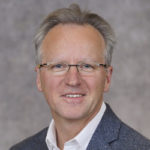ALEXANDER HOLDEN and HEIKO SPALLEK. Labor’s Pensioner Dental Plan: Long in the Tooth or a Novel Idea?
May 6, 2019A step in the right direction for Australia’s oral health? Following the release of the Grattan Institute’s report; Filling the gap: A universal dental care scheme for Australia, we have seen the Greens announce their policy of a universal dental scheme, “Denticare” funded through Medicare, and now, on 28th April, the Australia Labor Party announced their commitment to a targeted scheme, the Pensioner Dental Plan.
This scheme, heralded by Labor as, “the next step towards Labor’s vision for universal access to dental care in Australia” will provide $2.4 billion of funding to dental care for age pensioners and Commonwealth Seniors Health Card holders. Under this proposed scheme, eligible persons will be able to access care from both public and private providers, with Aboriginal Medical Services also being able to access funding for care under the plan.
Older people are not designated explicitly as a priority population within Australia’s National Oral Health Plan, although it is clear their needs are substantial. According to the National Survey of Adult Oral Health 2004-2006, those aged 55-74 years have an average of 22.2 decayed, missing or filled teeth. This rises to 24.3 teeth in those aged 75. The level of individual tooth loss and the need for oral care is related to socio-economic and health status and lifestyle.
Staffing shortfalls in aged care often mean there is little focus on oral hygiene, despite the recognised vulnerabilities of older patients whose medications may cause dry mouth and whose dentures may be uncomfortable. Patients with dementia present additional problems. The risk of malnutrition is strongly linked to poor dental health.
So – how would this plan work in reality? The scheme roughly mirrors the current Child Dental Benefits Schedule—just expanded to citizens over 65; the Pensioner Dental Plan also allocating $1000 to each eligible person over a 2-year period. As the Labor Party itself states, this is a move closer to providing all Australians have access to the dental services they need.
While many details about the Pensioner Dental Plan are yet to be revealed, it is critical that it ensures those who are meant to benefit from this initiative are able to do so. Dental surgery equipment is remarkably stationary and restricts practitioners to providing services based on the location of facilities. This poses something of a problem for those who have limited mobility, are housebound, or reside within aged care facilities; how will these individuals access the scheme? There is no current financial provision to help equip aged care facilities fund portable dental equipment.
In some schemes that exist currently within NSW, Local Health Districts have funded the purchase of portable equipment for use by practitioners visiting facilities to provide care. The care provided using these resources has in some cases been funded privately by patients and their families, or through oral health vouchers allowing patients eligible for public care to access treatment from approved private providers. In both NSW and Victoria, recent state election promises from the respective Premiers involved dental vans. Such initiatives (currently only providing services to children) might be solutions to allowing access for the vulnerable population of adults in aged care facilities.
Who should provide care within this proposed plan? The answer to this question is dependent upon the context in which care is likely to be delivered; the scheme needs to support care delivery by the right practitioners, at the right time. One of the features of the Child Dental Benefit Schedule is that accessing payment through the scheme is dependent upon claims being attached to a dentist’s Medicare provider number. If treatment is being provided by an oral health therapist in an aged care facility, how might this work if there is the requirement for a dentist to be intimately involved in the treatment proceedings? The scheme needs to be flexible enough to account for different delivery models, where other dental practitioners other than dentists provide care in settings dentists may not routinely practice within.
The announced scope of the plan is firmly preventative in focus. For example, the plan in its current form will not provide for crowns. This is perhaps a result of previous public dental schemes being reported to have been over- or underutilised, with restorative treatment being disproportionately provided. A shocking case from NSW emerged in the recent past, involving a dentist providing treatment to patients in aged care facilities without consent, many of the patients being inappropriately fitted with crowns funded by a now-defunct Commonwealth-funded scheme; a recently published article in the US addressing overtreatment has resulted in passionate reactions. Any Australian Pensioner Dental Plan needs to be presented in a way that promotes treatment that safeguards the best interests of the most vulnerable. The administration of the plan should consider how the scheme will be evaluated to examine issues of equity, the treatment provided, how the scheme is accessed and who by.
If the impending Federal election returns a Labor Government, those implementing the scheme will need to consider how the Pensioner Dental Plan is most effectively brought into being. In the context of the scheme, if those most in need of publicly-funded, preventative dental treatment cannot access services, the scheme is ultimately impotent. The plan as currently announced has the potential to increase inequities within the aged population, which is clearly not the intention of those conceiving the plan. Despite these concerns, the announcement of Labor’s intention to establish the Pensioner Dental Plan is a good start and we should celebrate that oral health is finally being made the election issue it deserves to be.
Professor Heiko Spallek is Head of School and Dean; Dr Alexander Holden is Senior Lecturer in Dental Ethics, Law and Professionalism and Head of Subject Area – Professional Practice; both at The University of Sydney School of Dentistry.




